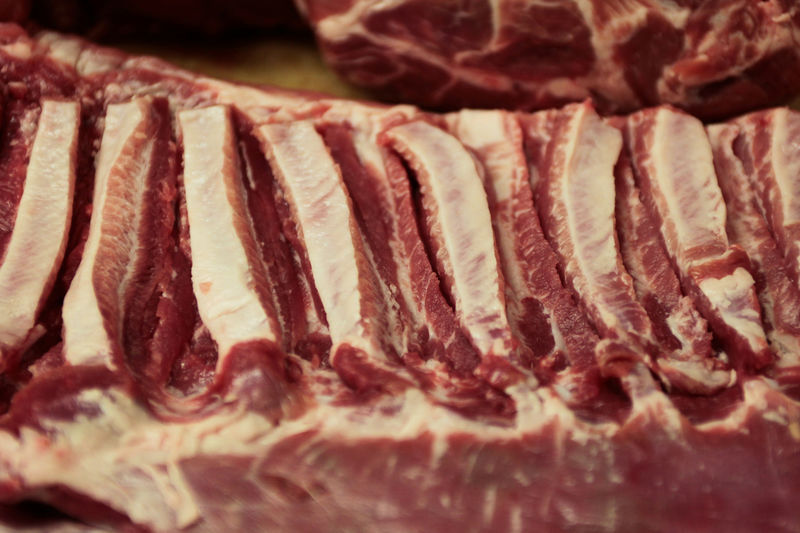By Rod Nickel and David Ljunggren
WINNIPEG, Manitoba/OTTAWA (Reuters) - China's suspension of two Canadian pork exporters' permits was due to a labeling problem, Canada's agriculture minister said, adding that she was hopeful of it being resolved.
China's action against two Canadian pork companies, announced by Ag Minister Marie-Claude Bibeau on Wednesday, widened a diplomatic rift between the countries.
On Thursday, Gary Stordy, spokesman for the Canadian Pork Council industry group said the problem centered on labels that contain information about a shipment's contents, weight and place of origin.
Bibeau confirmed that the labels were the problem.
"So it's an administrative issue and I am confident that we will be able to solve this situation," she told reporters in Ottawa.
Tensions have grown between Ottawa and Beijing since the December arrest in Canada of Meng Wanzhou, Huawei Technologies Co Ltd's chief financial officer, on a U.S. warrant. Asked about a link between Meng's arrest and China's trade actions against Canada, Bibeau told legislators on a committee that she would not make that connection.
Stordy of the pork council, which represents hog farmers, could not say what the specific problem was with the labels on shipments from Olymel LP and Drummond Export, the two suspended Canadian companies.
"All of our industry has to make sure it's meeting China's import requirements," Stordy said. "There's extra scrutiny, and the information needs to be correct and accurate."
Since Meng's arrest in December, China has arrested two Canadians and halted canola imports from two other Canadian companies. Canadian Prime Minister Justin Trudeau's Liberal government on Wednesday offered financial assistance to Canadian canola farmers who have been harmed by China's ban.
Although Trudeau's government is under increasing pressure from opposition legislators to retaliate over China's various actions, Bibeau told the House of Commons' agriculture committee on Thursday the situation was "very delicate," and that Ottawa did not support the idea of escalation.
A federal government source, who requested anonymity given the sensitivity of the situation, described the pork export suspensions as things that happen "in the normal course of events."
"I wouldn't want necessarily to put that in the same category as canola, which is obviously a very serious issue," the source added.
All other Canadian pork processing facilities remain eligible to ship to China, said Katie Hawkins, a spokeswoman for Bibeau.
But Canada's Global Affairs department has warned exporters of the need to meet all of China's export requirements, Stordy noted.
Drummond Export, which operates a single meat plant in Quebec, received notification this week of its suspension, said Bruno Mussely, the company's international development director. It is still waiting for a clear explanation.
"We’re just waiting here to find out the reasons why," he said. "It's unpleasant for sure."
Drummond sells pig feet to China, one of the company's key markets. In over 20 years of shipping to China, Mussely said Drummond has never been suspended.
The other Quebec-based company targeted by the suspensions was Olymel LP, whose Red Deer, Alberta pork plant had its export permit suspended. Company spokesman Richard Vigneault said Olymel was assessing the situation and had no further comment.
The Canadian Food Inspection Agency last week said some Canadian pork shipments to China had been delayed because exporters used outdated forms that certify the cargoes meet Chinese requirements.
The agency could not immediately comment on Thursday.

Stordy said the suspended companies now need to correct the labeling on shipments of their pork products and explain to authorities in China as to what preventative actions they are taking to see their export permits restored.